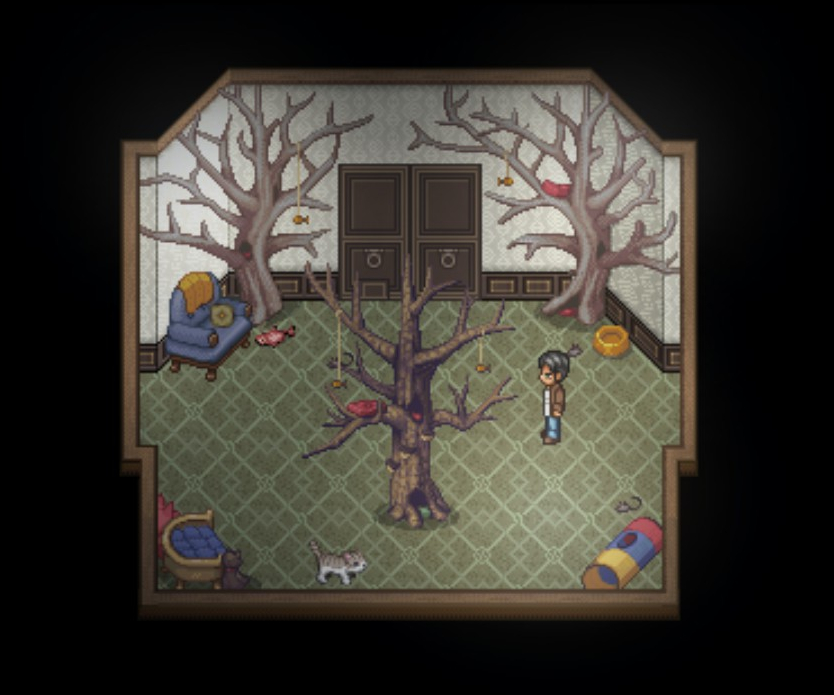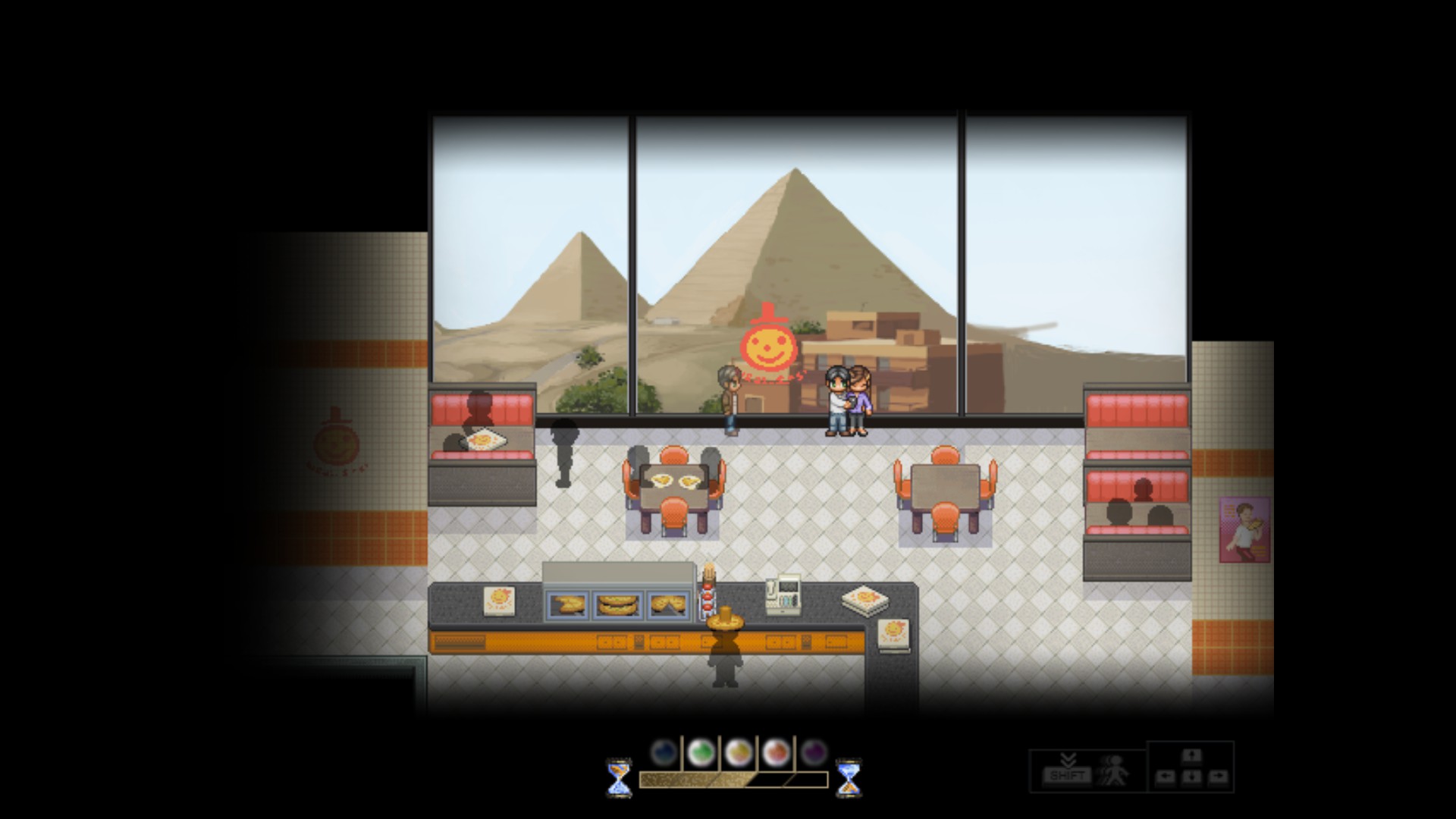Impostor Factory is the third major entry in Freebird Games’s series about helping people with terminal illnesses die happily by altering their memories. I’ve been very positive about the first two entries in previous reviews, and this one continues the trend, though it has a few key differences.
The previous two games both started with Sigmund Corp employees Eva Rosalene and Neil Watts visiting a elderly client to alter his memories. Here, we play Quincy, a nondescript everyman, attending a party at a slightly rundown manor. We find out that the party is being held by two elderly scientists, for the purpose of presenting a new invention to investors. Quincy, occupation and history unknown, seems uncomfortable and out of place among the wealthy investors and eccentric scientists. He becomes still more uncomfortable when the murders begin.
And so Impostor Factory fakes us out a couple of times. First, it looks like it’s going to be a murder mystery. Minutes later, the previously deceased victims are alive again, and walking around like nothing happened. And then they’re dead again. And then they’re alive. And then it looks like the story is going to be a time loop murder mystery. And then it changes again, and we find out what’s really going on, and remind ourselves that this is, after all, a sequel to To the Moon and Finding Paradise. After the initial fake-outs, the story ends up being broadly similar to those of previous games, if somewhat darker, though still punctuated with light and even absurd moments.
If To the Moon was about achieving catharsis through memory alteration and Finding Paradise was about the needless anxiety Sigmund Corp’s service could create, Impostor Factory is a synthesis of both, with catharsis following anxiety. If you could redo your life over and over, what different choices would you make, and what does that say about the choices you originally made, and about the person you are? If you do enough differently, would you still be you?
The previous games were quite light on actual gameplay, and Impostor Factory streamlines this even further. The mini-games and matching puzzles of previous instalments have been elided – the closest thing we get to a puzzle is a sequence near the start where you have to coax a cat out of hiding to get a key.
There’s also a cat chase sequence that isn’t a puzzle, so don’t try to catch him.
The overall progression is also much more linear. In the previous games, there were a lot of relatively freefrom sections, where you could click around and investigate things in your own order, but these are far and few between in Impostor Factory. Story-wise, this makes sense – unlike the previous player characters, Quincy is not a trained professional methodically moving through someone’s memories trying to alter them, but a hapless everyman trying to make sense of a confusing situation, who is led by other forces for much of the game.
Interactivity is sacrificed to give the story a stronger forward momentum, and that’s really been the main focus of all these games, so I won’t call it a major loss.
The art exceeds the bar set by Finding Paradise, with a large number of animations bringing a surprising amount of emotion to the tiny pixillated characters. Unless you really hate pixel art, this game is a constant delight to look at. And while the music once again fails to recapture the lightning in a bottle that was To the Moon’s soundtrack, it’s nonetheless fitting and a great accompaniment. A credits song by Laura Shigihara is notably absent for the first time in the series (a deliberate choice by Kan Gao).1
Once again, if you enjoyed the previous games in the series, you’ll probably enjoy this one too. It’s not a good one to start with though – the story gets a bit inside baseball, and there’s a twist towards the end that will only be more confusing if you haven’t play those. So if you haven’t started the series, well, consider this a recommendation of all three games.
TIL this is a real Pizza Hut in Giza.
-
This loss was so acutely felt, that Pealeaf, who hums on the game’s credits track, produced a bonus song for the game! ↩︎
 David Yates.
David Yates.